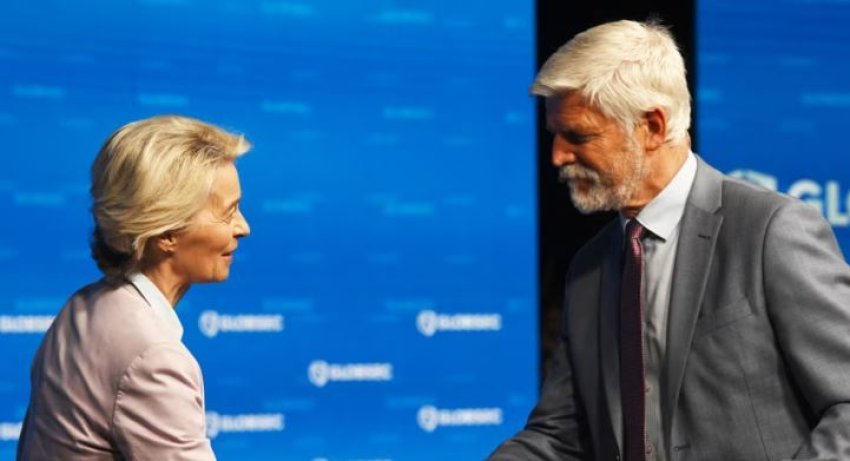European Commission President Ursula von der Leyen has called for a greater European commitment to security and overcoming the reluctance to spend on defense, citing Russia’s invasion of Ukraine as evidence that the bloc must “think of our union as a security project at its core.”
Speaking in the Czech Republic’s capital at the annual security forum, Globsec, von der Leyen warned that the coming years will pose “great risk.”
“If we want true peace, we must reevaluate the foundations of Europe’s security architecture. The invasion initiated by Russia has been a wake-up call for Europe,” she said.
Von der Leyen criticized non-European countries that argue against arming Ukraine and warned against premature discussions for negotiations that neither Moscow nor Kyiv seem ready to hold two and a half years after Russia began its invasion.
As for when the time for negotiations will be, she said, “it is up to our Ukrainian friends to determine.”
Russian forces currently control one-fifth of Russian territory, but Ukrainian troops now claim control over more than 1,200 square meters of Russian territory after launching an incursion into the Kursk region last month.
While she specifically mentioned “many countries outside Europe” calling for immediate negotiations, it seemed to be a jab at EU member Hungary, whose President Viktor Orban undertook a self-declared and uncoordinated “peace” mission to Kyiv, Moscow, and Beijing immediately after Budapest assumed the presidency of the EU Council in July, angering Brussels.
“We want the war to end as soon as possible,” von der Leyen said.
However, she added, “my stance is that peace is not just the absence of war. Peace is an agreement that makes war impossible and unnecessary. Therefore, we must put Ukraine on track to negotiate such a peace.”
She warned against blaming Kyiv for the unprovoked invasion by Russia. She asked whether Hungary or former Czechoslovakia should be blamed for the invasion of their countries by Soviet and Warsaw Pact troops in 1956 and 1968.
“The answer to that question is very clear. Kremlin behavior was illegal and brutal then, and Kremlin behavior is illegal and brutal today,” she added.
Von der Leyen said Europeans have many different histories and speak many languages, “but in no language is peace synonymous with surrender; in no language is sovereignty synonymous with occupation.”
“Therefore, those who argue to stop supporting Ukraine are not arguing for peace. They are arguing for the surrender of Ukraine,” she emphasized.
Von der Leyen noted that one of the lessons of Russia’s war in Ukraine and the international response to it is that “Europe has overcome its long-standing lack of willingness to spend on its own defense.”
She highlighted the importance of American support and transatlantic cooperation but stated that “it is Europe’s duty to defend Europe.”
She mentioned that defense spending by EU member states has increased from 200 billion euros before the war to nearly 300 billion euros in 2024.
“We Europeans must keep watch. We need to focus our attention on security dimensions in everything we do,” she concluded.
Von der Leyen: Europe Must Reevaluate Security Foundations and Strengthen Ukraine’s Defense






